“All water has a perfect memory and is forever trying to get back to where it was.”
— Toni Morrison
In one of my earliest memories, I’m standing in a shower. Hot water trickles down my arm. I’m watching my hand, fingers outstretched. This is what magic feels like: rivers flowing out of my body, like the rivers flowing out of Eden. I return to this visual again and again and again throughout my life. The open palm, the water. That quiet feeling of power.
What did it feel like to step into a river for the first time? A bewitching pull, a wet grip around my ankles. A sensation entirely distinct from the forward-backward lull of ocean waves, the circular swirl, the return to shore. A different energy, a stirring, an awakening. A promise of voyage. An intoxicating, Earth-shaping potential pulsing through the current.
A river is many things because a river moves through many places. Constantly changing, adapting. Even the concept of a river defies definition. Geographer Nick Middleton writes, “Our friend the Oxford English Dictionary has it that a river is ‘a copious natural stream of water flowing in a channel to the sea or a lake, etc.’ This definition serves for many rivers but not for all. Rivers in very cold places do not flow all of the time. Neither do most rivers in deserts.”1 The truth is, many rivers live and die and are reborn. In this way, a river’s absence can say as much as its presence: I am here when I am not here. Death is an ephemeral state.
Rivers are world-makers, sculptors. A cradle for civilizations past, present, and future. Language, ideas, and art traveling upstream and down. Creative expressions of source and spirit. Pieces of the sky transformed, life bubbling up from the spring. They are threads that weave earth to sea, ropes that bind, natural arteries that tie us to our land. But rivers hold contradictions: they connect and separate all at once. Rivers are borders, boundaries, obstacles between freedom and imprisonment.

Spiritually, river water is associated with liminal spaces and expanded states of consciousness. In religious texts, rivers are frequently the birthplace of profound visions, a sacred arena for journey work, for initiating flow, for metamorphosis.2 They are thresholds, mythic corridors to lands unknown. Taschen’s Book of Symbols refers to river crossing as “a transition and a metaphor for the possibility of traveling between the mind’s two shores, the conscious and familiar shore and the unconscious and farther shore.”3 In Greek mythology, the land of the dead was surrounded by five rivers: Acheron (the river of woe), Cocytus (the river of lamentation), Phlegethon (the river of fire), Lethe (the river of forgetfulness), and Styx (the river of hate). Five rivers, five fingers, five pathways snaking through the underworld.
“Have you also learned that secret from the river; that there is no such thing as time? That the river is everywhere at the same time, at the source and at the mouth, at the waterfall, at the ferry, at the current, in the ocean and in the mountains, everywhere and that the present only exists for it, not the shadow of the past nor the shadow of the future.”
―Hermann Hesse, “Siddhartha”
In therapy, I talk about the rivers in my body. The one hundred billion tiny rivers of neurons in my brain, the rivers of electricity that allow me to think and walk and breathe and swallow and feel everything so deeply. These are rivers only I can travel, underground rivers, ones that cascade inward. Rivers that coil into themselves, a watery ouroboros. Thoughts on loop, fears that linger. Rivers I want to control, rivers I want to run dry.
There are rivers that only certain people access, that only certain souls attempt to explore. Rivers shared between us like redwood tree roots and mycelial ribbons, intertwining in a poetic mycorrhizal dance. Calling out to each other for attention, for sustenance, for healing. These are sensual rivers of salt and sorrow, of euphoria and ecstasy. They flood like the Nile: a lush overflow, a trail of fertile soil in their wake.
And then, of course, there are rivers of blood, ferrying life into and out of my heart. Ancestral rivers, channels brimming with shame and guilt, powerlessness, terror, otherness, Jewishness. Fast-flowing rivers that lead to co-dependency and addiction and mental illness. I look at my six-year-old and pray that these rivers are shallow in her, that these creeks evaporate with time, with gentle practice. She tells me there is a badness inside of her that she wants to scratch away, and I think about how the word “river” can be traced back to its Proto-Indo-European roots, from *h₁reyp- meaning “to scratch, tear, cut.”4 I think about how deep inside a river’s undulating, serpentine body there is a fierce, carving force. Rivers can be violent, desperate, can plunge and surge to form waterfalls and whitewater rapids. Rivers are wild and willfull. We build our dams but rivers yearn to be free.
It's August. I am mostly naked in the emerald water of the Yuba River, feeling the current’s strength as I cling to volcanic basalt and granite, my body pushing up against gravity. The water touching my thighs comes from the crest of the Sierra Nevada, twisting and winding 100 miles, descending 7000 feet in the process. My shoulders tingle in the afternoon heat. I lift my hand out of the water and watch tiny drops fill with sunlight before they fall off my fingertips.
I feel an old longing inside of me rise up. I want to be carried. I want to descend. I want to accept movement, change, impermanence. I think about this river’s patience, its persistence, its wildness. Rivers shape the earth just by showing up, by existing, by finding their way. And I think, for the first time, maybe I can do that, too.
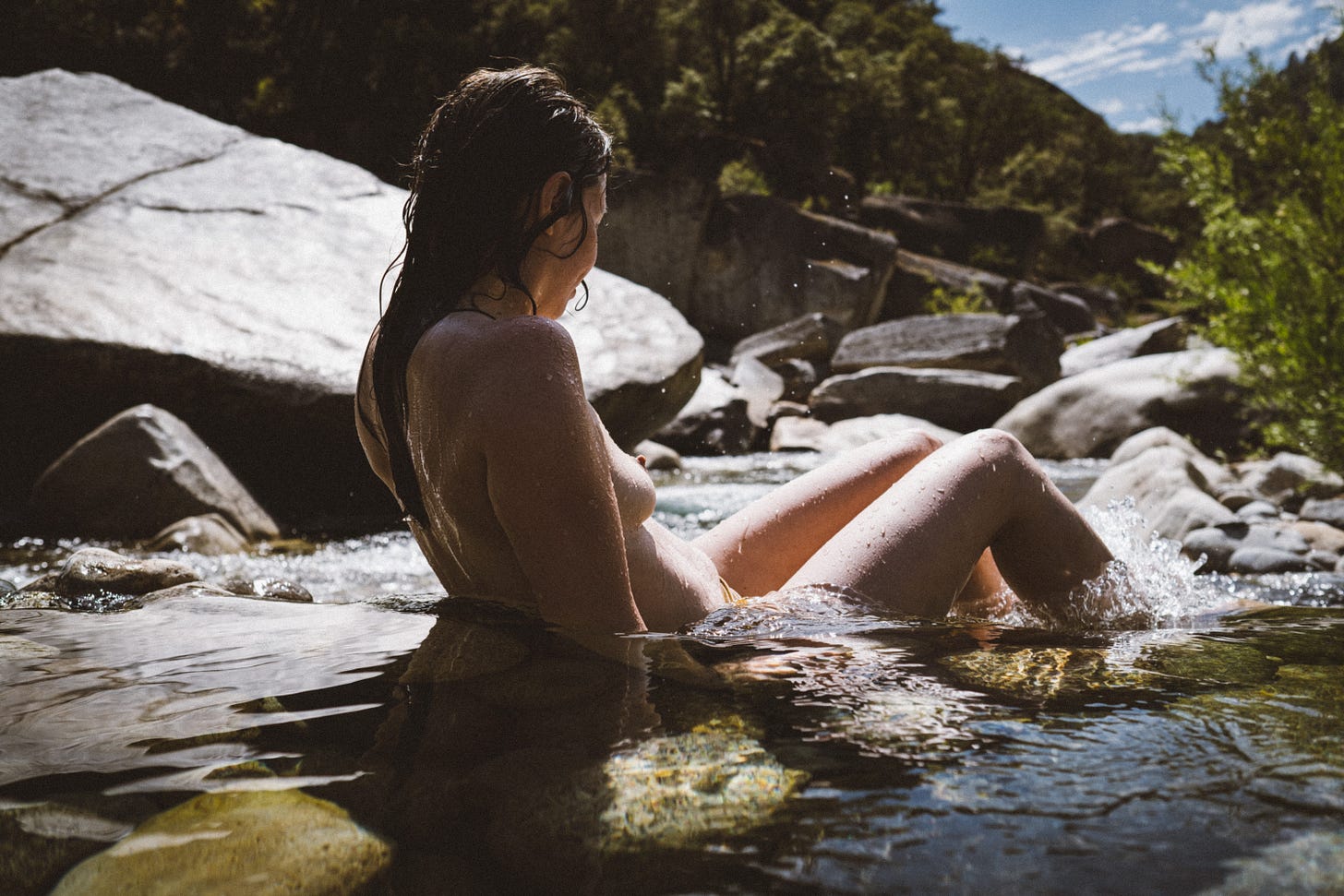
There is a school of early Jewish mysticism called "Merkavah mysticism" — "merkavah" being the Hebrew word for "chariot." It centers on stories of heavenly ascent, describing the visions of exiled prophet Ezekiel as he sits by a river. While contemplating the water, he sees a fiery chariot emerging from the sky, led by four otherworldly beings and containing wheels within wheels. Jewish mystics have contemplated the accounts of these visions for centuries — how Ezekiel reimagines the chariot from a war machine, this violent and destructive vehicle, into something profoundly divine. This summer, I took a class called “Becoming a Merkavah: Wheel, Wing, and Harness” with historian Dr. Yosef Rosen, who explained that "the chariot is the spirit become mobile," which is an apt description for a river. There are many other sacred rivers described throughout ancient texts (source).

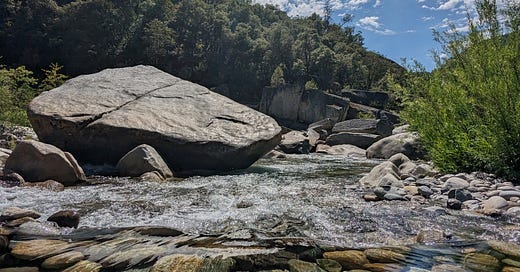


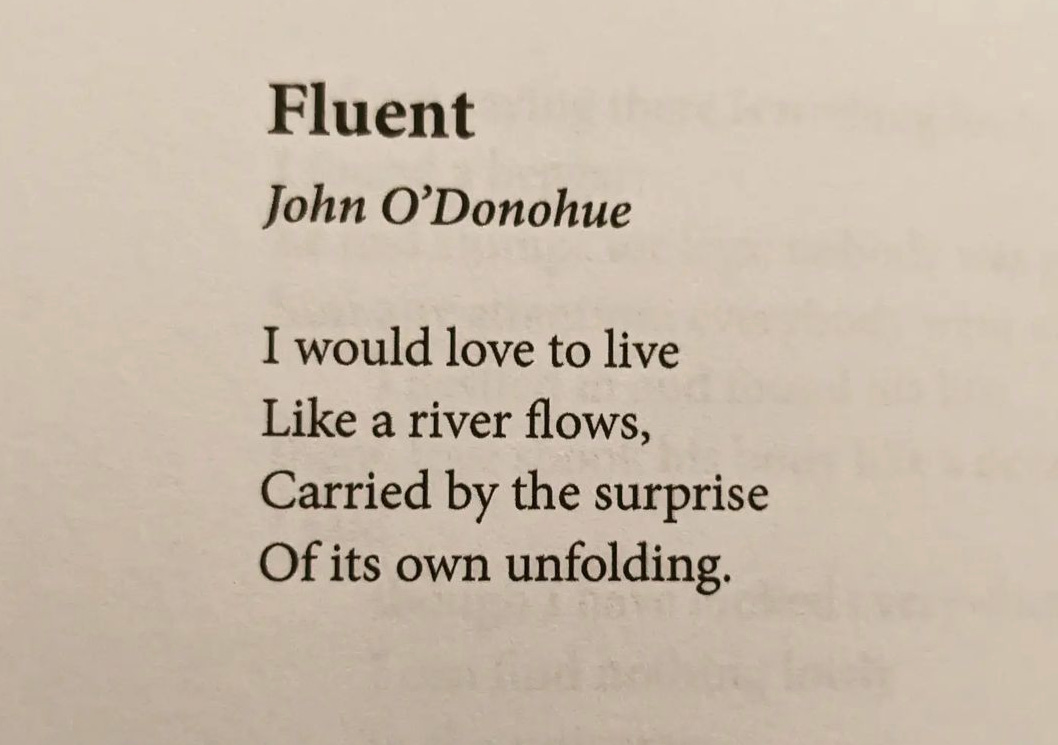
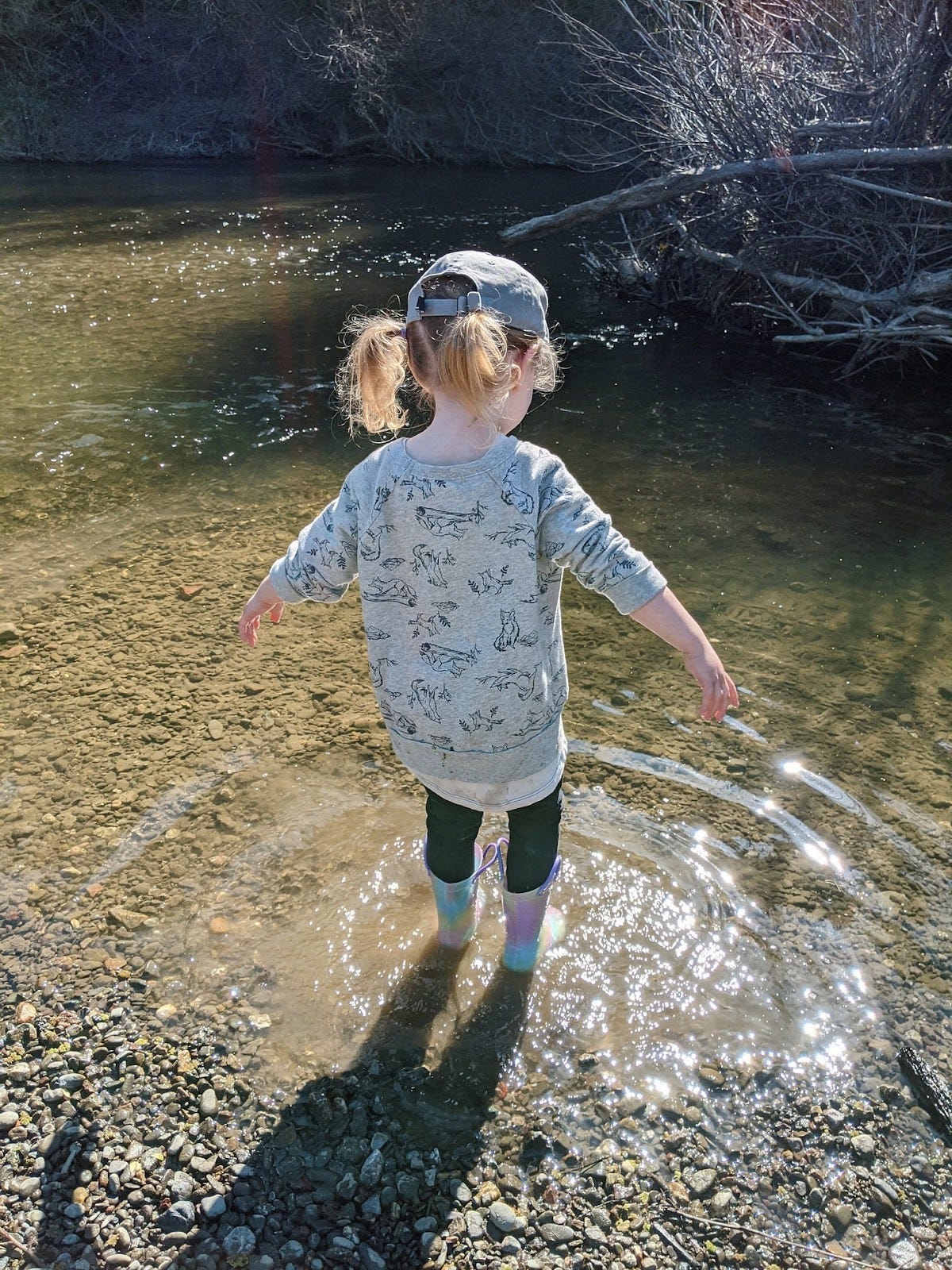
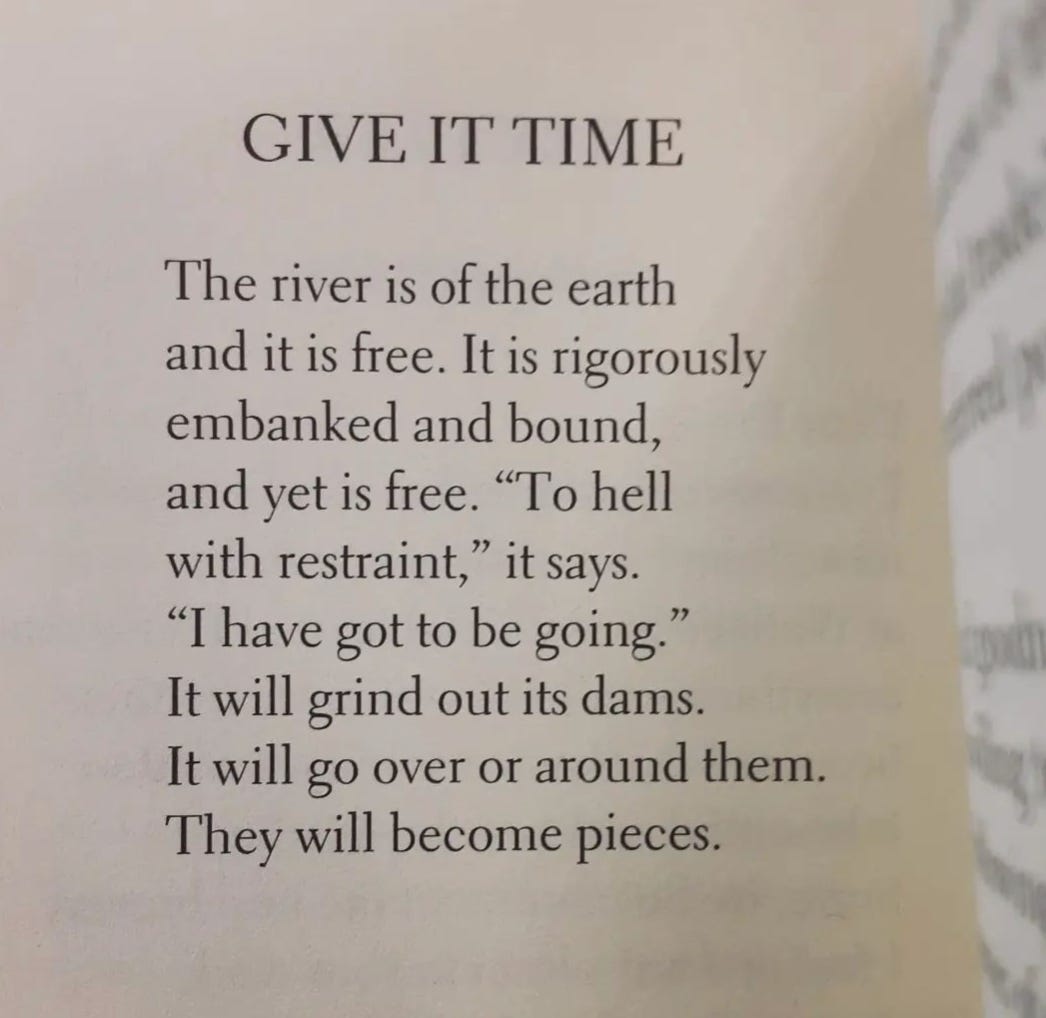
I have goosebumps, so so infinitely grateful to have stumbled across your work, your writing is like anything I could ever dream of. It’s both a motivation of feeling I finally found the reason of why I wrote to create hopefully something that at least comes close to this experience of reading your words and also it is a feeling of desperation and giving up, because why would I continue to create something that already exists.
But more so dear Hannah, I am grateful for a specific paragraph. I have felt drawn to rovers my whole life, my soul running dry whenever I would live in a place without one nearby. Even fascinating Glastonbury, where I am currently based and freebirthed my son (whose name is Fynn River Eoin) I can’t wait to move away from to a place where the rivers run wild and free, where I can sit on its smooth stones and get immersed in its swirls and sunlight dances. And I keep saying I can’t dream of anything but this, wondering what this means, why it’s so important. And now it hit me with full force: “Spiritually, river water is associated with liminal spaces and expanded states of consciousness. In religious texts, rivers are frequently the birthplace of profound visions, a sacred arena for journey work, for initiating flow, for metamorphosis.” - this dispersed the confusion I had in my path, my disbelief in my priestess work, my self imposed doubt in my ability to connect to spirit, natures magic and the otherworld within.
How was I not aware ever before of this? Thank you from the bottom of my heart for making visible this blind spot. You put everything so perfectly.
Thank you for this meditation on rivers as carriers of life force, moving inside, outside, and in-between. I’m reminded of the haunting song “Running to the Sea” by Royksopp—how our rivers within feed the desire to keep living even in the darkness, keep moving towards the seas of being that we share…